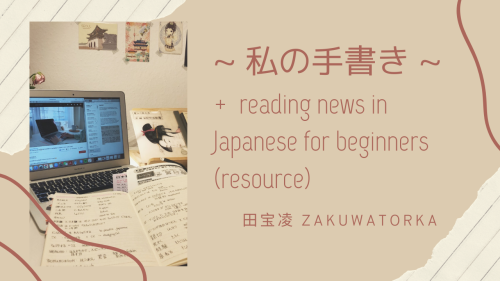#study languages






22 March 2022
Another study session in library studying Korean

27 February 2022
Today is language day. I was studying English in the morning, and after lunch, I started German Hope you have good weekends
So since I failed at posting during my study abroad I am going to attempt to sum everything up here. I hope this might be helpful for people who want to study abroad in Brazil in the future.
Disclaimer: This is written based on my personal experience which is of course affected by who I am (20-year-old, female, Austrian, introverted, straight, white,…) and the people I happened to meet and a million other small factors.
If you have any specific questions don’t hesitate to inbox me or send me a message.
Rio de Janeiro
I spent my exchange semester in Brazil or more precisely in Rio de Janeiro. Rio de Janeiro is without a doubt a city unlike any other (I have ever seen at least). My favourite thing about Rio is its diversity in both its population and the landscape. Rio really has it all amazing beaches, lush-greenness and a buzzing city. The city itself was probably my favorite thing about my exchange. I remember the first day I arrived and drove through the city to get to my apartment. I was fascinated by how the rich and the poor lived so close to each other and how there were 15 story buildings right in front of green hills and corporate office next to a beach.
Culture and People
The culture is completely different from anything I have ever experienced before. People in Brazil are so friendly it is shocking. Everyone seems to be open to have a chat and help you out. The one downside I found to this (as an introvert) while everyone is open to having a chat it can be hard to find real, solid friends. People tend to talk about hanging out or doing something but as you are talking about it both of you already know that it will never happen. So while in general, I cannot complain about people since they are very friendly to foreigners I have not made any real friends.
Language
However, not making friends might also have something to do with the fact that my Portuguese wasn’t really good enough to speak much when I arrived here and most people don’t really speak English. While it has improved greatly (especially my understanding of native speakers) I am still missing the practice to come up with words quickly enough to have a fluent conversation. Also, slang is still an issue while I have learned some of it there seems to be an endless amount of slang terms that I will probably never know (the fact that Brazilian Portuguese slang changes quickly and varies by region isn’t helping either):
Food
I have a love-hate relationship with Brazilian food. There’s some food I really enjoy but then there is even more food that I don’t particularly like. The food that I did enjoy seemed to get too monotonous quickly. In general Brazilian cuisine tends to be very much meat-based (being a vegetarian is still somewhat rare here) with carbs also playing a big role. As someone who prefers to eat a bit more plant-based and lighter it was a bit difficult to imagine eating a typical Brazilian diet every day. But of course, this wasn’t really an issue I just bought my vegetables in the supermarket and prepared them the same way I would have at home. But I did miss typical dishes from home and also Maki with avocado or cucumber (for some reason they only have sushi with actual fish here).
Money
Brazil is not as cheap as some other Latin American countries, especially Rio is quite expensive. I would say on average the living expenses here are as much as in other European cities (not London or Paris). The prices for food are pretty moderate with imported goods, of course, being more expensive. The metro is cheap compared to European standards and while it does cover much less area than the underground systems in most other major cities it really does take you pretty much everywhere that you’ll need to go. Uber is also surprisingly cheap. If you can split the ride it might just end up being cheaper than the metro ticket. My monthly living expenses without trips and rent were around: €500.
Housing
The rent prices vary greatly depending on the area you live in, however, in general, the standard of living is lower so even if you pay €500 a month the apartment might have all the necessities but often just doesn’t look as pretty (not an issue just something to keep in mind). I personally chose to live in an apartment in Ipanema which I shared with another girl from my university we paid about €500/month each. When choosing an area to live in you should keep in mind that there are areas that are not so safe. Personally, we booked our apartment on Airbnb but many people find theirs on facebook or upon arrival.
Trips
I managed to go on quite a few trips but getting around Brazil can quickly get complicated and expensive since it is such a huge country. If you have a place you already know you would like to visit I recommend booking the airplane ticket as early as possible the closer you get to the date the more expensive they tend to get. The cheapest airplane ticket I managed to get was about €70 (one hour flight, no checked bags). There are buses almost everywhere and they can be significantly cheaper however it is debatable whether you would rather pay €60 and drive for 14 hours or pay €150 - 200 and fly for 2 to 3 hours. For shorther distances buses are of course completely fine and you can book most of them online or buy a ticket directly at the central bus station.
Personally, I visited:
Paraty
Salvador
Belo Horizonte
Ouro Preto
Buzios
Blumenau
Curitiba
Porto Alegre
São Paulo
Petropolis
Education system
Like in many countries getting a good education in Brazil means getting a private education. Since my university had a contract with a private university that’s the kind of educational environment I experienced. Personally, education is a topic I feel quite passionate about or more specifically I feel quite passionate about the belief that education should be as accessible as possible to as many people as possible (I am not going to go in-depth here about why..). The Brazilian education system is built in a way that greatly advantages people who are more well off than the average Brazilian. I personally was not a fan of my university since I felt the entire thing was just this bubble that didn’t in any way mirror the Rio that I experienced outside of university.
Society
I touched upon this briefly in the previous section. One of the most interesting dynamics about Brazil is the society. There seems to be this strange dichotomy were Brazilians are proud of the diversity of their population yet there is some kind of deeply ingrained, probably to a large degree unconscious (like in many countries), racism going on. People who are noticeably darker in complexion are mostly still part of the poorest of the population while the richest look astonishingly European and nothing is done to change this. Brazilians are proud of their diversity yet the order of their society still reflects one of the colonial times. (I am in no way saying that every Brazilian supports the way things are. This is more a reflection of the politics going on in the country which are unfortunately corrupt to a large degree so we cannot exactly consolidate the current societal state with the actual opinion of people)
Touristy things + Leisure time
Now for a lighter topic. There is plenty to see in Rio and when I say plenty I mean a lot as in I didn’t even manage to see everything that I wanted to see. I plan to make a more comprehensive post on places to see in Rio (well-known ones and some not so well known). Leisure time is to a large degree spent outdoors on the beach, hiking, or at parties. One disadvantage of Rio is that it is a quite outdoorsy city so when it rains there aren’t many options for entertainment.
Party and dating culture
Parties here are a lot more spontaneous often happening on the street in front of university buildings. They are also a bit wilder it is quite common for one person to make out with several different people a night and it is almost unheard of that someone doesn’t drink alcohol. Dating culture from what I experienced (which is admittedly somewhat limited) is very relaxed. Casual relationships are extremely common and break-ups are usually quite pragmatic. At the same time, the macho culture is still a bit more prevalent than in many European countries. As someone who is introverted and doesn’t really enjoy casual relationships or just dating for the sake of dating it wasn’t my thing but each to their own.
Conclusion
Would I want to live here forever? No. Did I really like the experience? Yes. Brazil is what I like to refer to as an “extrovert country”. So as an introvert it can be quite exhausting to navigate the social life here even more so than in european countries since people here are very talkative and open. However, this was a thing I was prepared for and since it was a dream of mine to got to Brazil one day despite that I can’t say that I didn’t have a great time and that it wasn’t worth it. I definitely see myself coming back to see more of the country. I simply personally enjoy the openness for a short period of time but it would probably be too much for me to live like this for the rest of my life. I am also quite thankful to have been born in a european country with free education, pretty good public health care, less corruption and overall more stability. Still I would not ever tell anyone NOT to go to Brazil, or Rio especially. I like to think of Rio as the bad boy of cities. It might be a little dangerous or more uncomfortable than others but it’s just so pretty, fascinating and mysterious you can’t help but fall in love.

FUN WAYS TO LEARN A LANGUAGE☁️
[like for future reference/motivation]
learning a language can be a bit challenging sometimes, that’s why today i wanted to share with you few ways to have a fun learning experience instead of reading textbooks for hours.
1️⃣ video games: change the language of the games you like to play into your target language. for example, my favorite game to play in chinese and learn at the same time is animal crossing new horizons because it features useful and daily life vocabulary! (+that game is so calming i love it so much)
2️⃣ watch your favorite movie or tv show subbed or dubbed in your target language. the most efficient way would be to watch something you already know by heart but in your target language + the subs in your target language as well! this is what i call the winning combo! (if you are a beginner watch cartoons! can easily be found on yt or any other platforms depending on the language)
3️⃣ listen to music in your target language and try to sing along while reading the lyrics!
4️⃣ you probably spend a lot of time on your phone so why not change your phone language into your target language?
5️⃣ follow content creators that speak your target language: the best would be to find youtubers because you can listen to native people speaking, learn fun things with them but also relax at the same time! (now a lot of creators upload subtitles too)
HOPE IT HELPS! HAVE FUN LEARNING
more on my instagram account: thomreads
Review/Oбзор
как жаль - what a pity
ехидно - (adv) maliciously; mockingly, sarcastically
любопытный - (adj) curious, inquisitive; interesting
кстати - (adv.) by the way; to the point; as a matter of fact; apropos
посочувствовать - to sympathize (with)
сказанное - (n, decline as adj.) what has been said
New Words/Hовые Cлова
наиболее - (adv) the most, above all, most of all
ляп - (n) flub, slip-up
болтать - (v) (colloq.) to blabble, talk needlessly or endlessly; (colloq.) to converse; to dangle; to shake, rock, stir
толк - (n) sense, judgement; talk, rumor
The -овать suffix can be used to turn nouns into verbs, e.g. штраф (fine, penalty) becomes штрафовать (to fine). When conjugating, drop the -овать in the present tense. For example, ревновать (to be jealous) becomes я ревную, ты ревнуешь, etc.
Review/Oбзор
чувствовать - (v) to feel
торговать - (v) to trade
жаловаться/пожаловаться - (v) to complain
иронизировать - (v) to speak ironically
переставать/перестать - (v) to stop, cease, quit
голосовать/проголосовать - (v) to vote; to give voice
New Words/Hовые Cлова
использовать - (v) to use
доставать/достать - (v) to reach, to be able to reach; to take out; get, procure, obtain
требовать/потребовать - (v) to demand, request; to need, call for
рисовать/нарисовать - (v) to draw, design; to paint
In Urdu we don’t say “I won’t give you what you want” if that person went out of line and then asked for a favour, we informally say “تیرے باپ کا راج چل رہا ہے؟ (Teray baap ka raaj chal raha hai ? [“ch” as in “chair”])” which roughly translates to “Is this your father’s kingdom?” and I think that’s beautiful.
Submitted by @armedwithsarcasmandrandomfacts, with the help of @pseudomomnas,@allela21 and @mino-lingual
[general resources by the fantastic @mino-lingual: for grammar this drive,Urdu lessonsandUrdu English Dictionary]
In Norwegian, we have this saying “Ta en spansk en” which translates to “Take a Spanish one” which we use if we want to take a rough turn or do something a little wild.
Submitted by @galx-a, with the help of @marilingo
[resources:bab.la,“Norwegianisms Part II: Full Pupp !”,“Tar du en spansk en ?” (in Norwegian) and “Kjenner du opprinnelsen til disse fem uttrykkene ?” (in Norwegian)]
In Finnish, we don’t “I’ll go out even if it rained cats and dogs”, we rarely use the old saying “Menen ulos vaikka sataisi ämmiä äkeet selässä” which literally means “I’ll go out even if it rained bitches/hags with harrows on their backs”.
Just another Finnish linguistic badassery.
Submitted by @decaffeinated, with the help of @neeleys,@bling-a-ling,@artniila,@holayshiteand@rragnaroks
[resources:Wiktionary,Urbaani Sanakirja (in Finnish)andSynonyymit.fi (in Finnish)]
In Sylheti Bengali, there’s a sweet dish called “ফিদা (phida)” and it sounds like the word for “punch/hit” which is also “ফিদা (fida)”. So as a joke, cousins and siblings would ask “ফিদা খাইটা নি ? (Fidā khā'iṭā ni ?)” which means “Do you want ‘fida’ ?” and if you say yes they might punch you playfully because after all you agreed to a punch (fida), not a sweet dish (phida).
Submitted by @nanacians, with the help of @bonedholt
We had a similar joke in Brazil. The word “bolacha” can mean cookie or a hit/smack depending on what region of the country you’re in. So one kid would ask “quer uma bolacha?” which the other kid interpreted as “do you want a cookie?” and would answer yes, and then would be given a slap, because they did agree to taking a hit/“bolacha”
In Dutch we’ve got this thing where you say a fruit or vegetable and you tell the other kid to say ‘mij’ (me) after every fruit/vegetable, and then at a certain point you say ‘sla’ (lettuce, but also imperative of ‘slaan’, to hit) and the other kid says ‘mij’, so they say ‘sla mij’ (‘hit me’) and you can hit them.
In Sylheti Bengali, there’s a sweet dish called “ফিদা (phida)” and it sounds like the word for “punch/hit” which is also “ফিদা (fida)”. So as a joke, cousins and siblings would ask “ফিদা খাইটা নি ? (Fidā khā'iṭā ni ?)” which means “Do you want ‘fida’ ?” and if you say yes they might punch you playfully because after all you agreed to a punch (fida), not a sweet dish (phida).
Submitted by @nanacians, with the help of @bonedholt
In Finnish we don’t say “dragon” we say “lohikäärme” which roughly translates to “salmon snake” and I think that’s beautiful.
Submitted by @noasadventures, with the help of @rragnaroksand@neeleys
[resource:Wiktionary,Wikipedia (in Finnish),Sanakirja.fiandWikisanakirja (in Finnish)]
Pet peeve strikes again.
Yes, it does sound like salmon snake to a modern speaker, but etymologically it’s something completely different: it’s an old loan from Old Swedish, floghdrake, that means a flying snake. Finns couldn’t pronounce the many consonants at the beginning of the word, so it changed in their mouths into lohi that sounds quite similar and happens to mean salmon. Käärme is a direct translation of the word drake, snake.
I’ve made a couple of posts about this, and will continue to do so as long as I see these translations going around. This is why language is so interesting.
In Mandarin Chinese we say “再见 (zài jiàn)” as “goodbye” or “farewell”, which roughly translates to “see (见) you again (再)” and I think that’s beautiful, because that means there is no true goodbye in the Mandarin Chinese language, and we only ever part ways for the time being.
Submitted by @fawn-ly
[resources:bab.la,Collins Dictionary,Yabla,Purple Culture,Han Trainer DictionaryandPin Pin Chinese]
In Danish, when the wind is really strong we can say “Det stormer/blæser en halv pelikan”, it directly translates to “It’s storming/blowing half a pelican” and I have absolutely zero idea why.
It is an older saying though, so not everyone will know it.
Submitted by @grapethranen, with the help of @ezhs
[resources: the article “Hvorfor siger vi, at det blæser en halv pelikan ?” in the Kristeligt Dagblad (in Danish), this blogpost “Det blæser en pelikan” by TALEMÅDER - SJOVE ORDSPROG(in Danish)and this video “Derfor siger vi, at det blæser en halv pelikan” by the weather and news stationDR (Danmarks Radio)(in Danish)]
In Irish Gaelic we don’t say “Santa Claus" or “Father Christmas”, we say “Daidí na Nollaig” which means “Daddy December” and I think that’s beautiful.
Submitted by @m1c-drop

Translation: “IN GERMANY, THE OBLIGATION TO DRIVE ON THE RIGHT SIDE OF THE ROAD PREVAILS ! You idiot* with your (Opel) Corsa better scoot off the left lane now !”
*lit. “evolutionary brake” - meaning somebody who represents an obstacle to evolution (very colloquial use)
[credit:this post by @best_of_jodel on instagram]
In Brazilian Portuguese, we don’t say someone “does crazy and weird things”, we say they are “porra louca*” which literally translates to “crazy semen” and I love those weird quirks in languages.
Submitted by @houseofthebattlegenie, with the help of @polyglotpearl
[*corrected by anonymous (and everyone else in the comments ^^’’)]








